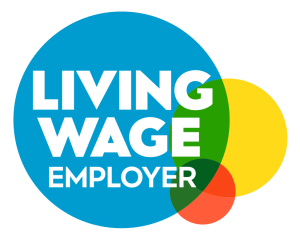A review of a lecture on 31 October 2019 by Professor Richard Drayton, Rhodes Professor of Imperial History at King’s College London, as part of St John’s College’s soul-searching academic project to investigate its history of engagement with slavery and empire
On 31 October 2019 Professor Richard Drayton, Rhodes Professor of Imperial History at King’s College London, delivered a stirring lecture as part of St John’s College’s soul-searching academic project to investigate its history of engagement with slavery and empire.[1] Entitled ‘Capitalism and Slavery: The View to and from Oxford’, Drayton’s lecture explored Oxford’s awkward history of pro-imperial historiography, racism, and material gains from slavery through the experience of one individual: Professor Eric Williams, the brilliant historian and first Prime Minister of Trinidad and Tobago.
Evidently a superlative scholar, Williams came to Oxford on a Trinidad Island Scholarship in 1932, ranked first in the First-Class Honours School in History in 1935, and was awarded a doctorate in History in 1938 for his thesis, The Economic Aspect of the Abolition of the West Indies Slave Trade and Slavery. However, in his autobiography, Inward Hunger (1969), Williams recounts the many harrowing and mundane instances of racism he experienced in this university. During his first year, a ‘long nosed’ colleague questioned both his intellectual capacity and his right to be at the university by asking whether English was spoken in Trinidad. He was saddened by ‘the ladies who moved from beside me when I knelt at the communion rail’, and repelled by the advice from his college dean that that he should return to Trinidad because he was no different from other West Indians, who were all ‘keen on trying to get posts here which take away jobs from Englishmen’.[2]
In 1944, Williams published his doctoral thesis in the United States as Capitalism and Slavery, having moved there in 1939 as a result of the relentless racism he experienced at Oxford and his realisation (spurred by fellow scholars) that there would be no academic opportunities for him in England. His thesis was that (i) Atlantic slavery had shaped modern racism; (ii) the slave and plantation trades were central to economic and social modernity in Britain; (iii) the new capitalism which arose out of the Atlantic system was hostile to both mercantilism and slavery; and (iv) abolition came through a particular combination: the simultaneous activity of white abolitionists and slave resistance and rebellion (Haiti, 1792-1802; Barbados, 1816; Demerara, 1823; Jamaica, 1831).

Williams’ scholarship was deeply influenced by the historian C.L.R. James, his friend and former tutor (who, incidentally, described Capitalism and Slavery as a ‘masterpiece’).[3] It was also deeply influenced by the imperialist intellectual miasma of Oxford, as epitomised in the scholarship of Sir Reginald Coupland, Beit Professor of Colonial History (1920-1948). Essentially a hagiographer of empire, Coupland spoke and wrote of the British Empire as an honourable trustee: a benevolent, beneficent force in the world, operating according to ‘the doctrine of trusteeship’.[4] In this, he was no outlier. In 1942, Oxford’s registrar, Sir Douglas Veale, wrote to Sir Ralph Furse, Director of Service Recruitment at the Colonial Office (also known as ‘the father of the modern Colonial Service’)[5] making the case for the continued location of colonial training at the University as opposed to its removal to a specialist staff college. At Oxford, cadets would be exposed to what he described as ‘objective’ scholarly assessments of Britain’s imperial record, but would still believe in ‘the value of what they are doing … that on the whole the British Empire has been a beneficent Institution’.[6]
Williams thus pitted himself against institutional and intellectual orthodoxy, which was imbued with diverse, but serious, vested interests: Britain’s ideological justification for empire in the 1930s and 1940s. There is a direct line between the scholarship/apologetics of Coupland and his ilk, and the defences of empire which abound today, and are perpetuated by voices within this university. Without getting too deep into postcolonial theory, the epistemic violence of such discourses is palpable, and is often used to justify actual, physical violence. (Drayton has also written about this.)[7]
Meanwhile, Williams himself—although his work was an integral part of a rich seam of historical analyses of capitalism, slavery, resistance, and abolition (see W.E.B. Du Bois, C.L.R. James, Herbert Aptheker, Richard Hart)—was excluded from the canon. His work was absent from the Oxford History reading lists in the 1990s; from within the establishment, it was caricatured and attacked.
Decades later, Williams’ thesis has received powerful empirical support through Catherine Hall and Nicholas Draper’s ‘Legacies of British Slave-Ownership’ Project, a database showing who received compensation upon the emancipation of slaves, and what the recipients did with that money. The database is fascinating, and well worth investigating for yourself. Drawing from the records of the Slave Compensation Commission, this mind-blowing research reveals how individuals and firms redeployed slave wealth into other investments, with significant capital investment in London equity markets galvanizing the mid-Victorian economic boom. This stimulus may have played a crucial role in the so-called Great Divergence, exploding Britain’s economic trajectory beyond its contemporaries’ capabilities (or wildest dreams). The rest, as they say, is history.
Addressing the broken pipeline and appalling BME statistics across graduate programmes and all levels of academia, as well as the issue of reparations and redressing intergenerational social trauma, Drayton offered several suggestions. Rejecting the idea of state-to-state transfers (and the associated use of ‘foreign aid’ language), to address the countless injustices traceable to the horrific past of slavery, Drayton proposed that King’s College London contribute 10 per cent of its capital profit for ten years to ‘projects of repair’. This would include mentoring programmes, scholarships, and changing patterns within the university. In addition to economic measures, Drayton underscored the vocation of universities as ‘spirit-shapers’.
Much of Oxford’s history has been deeply, directly implicated in the ideological defence and perpetuation of slavery and the colonial project. The institutional weight and role of Oxford—both past and present—within society should be brought to bear on our cultural, socio-economic and political reality. Academics must speak up, and speak out, on injustices operating over the longue durée. Knowing what we know, living as and where we do, we share collective ethical responsibilities. For academics, these are part of our professional ethics, too. It is incumbent that we act. History, and broader interdisciplinary scholarship, can be one way forward. There are others, and they must be actioned in concert.
written by Emma Gattey
References:
[1] For Drayton’s own soul-searching regarding the uncomfortable Rhodes legacy and his eponymous chair, see R. Drayton, ‘Imperial History and the Human Future’, History Workshop Journal 74 (2012), pp. 156-172.
[2] Eric Williams, Inward Hunger: The Education of a Prime Minister (London, 1969). See also P.R. Deslandes, ‘”The Foreign Element”: Newcomers and the Rhetoric of Race, Nation, and Empire in “Oxbridge” Undergraduate Culture, 1850-1920’, Journal of British Studies, 37/1 (1998), p. 90.
[3] M. St. Pierre, Eric Williams and the Anticolonial Tradition: The Making of a Diasporan Intellectual (University of Virginia Press, 2015), p. 40.
[4] See R.C. Coupland, The Empire in These Days: An Interpretation (London, 1935).
[5] A. H. M. Kirk-Greene, ‘Sir Ralph Furse’, Oxford Dictionary of National Biography, www.oxforddnb.com.
[6] Bodleian Library, Oxford University Archives, UR 6/Col/6, Sir Douglas Veale to Sir Ralph Furse, 11 September 1942, cited in S.E. Stockwell, The British End of the British Empire (Cambridge, 2018), p. 34.
[7] R. Drayton, ‘Where Does the World Historian Write From? Objectivity, Moral Conscience and the Past and Present of Imperialism’, Journal of Contemporary History, 46/3 (2011), pp. 671-685.






